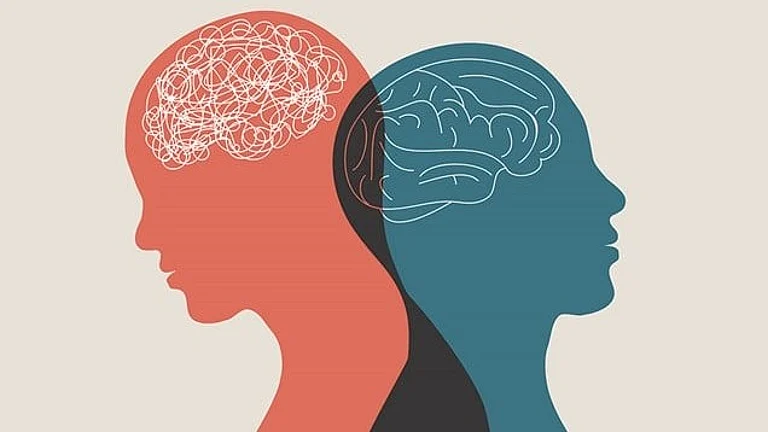
Dementia is an illness which impairs the brain's mental processes.
National policies should ensure that services are developed to support the increasing need for people with dementia across the country.
At present, an estimated one crore Indians aged over 60 years old have dementia.
Dementia is a generic term to describe an illness of the brain which impairs mental processes such as memory, speech, orientation, planning, organisational ability, and behaviour and personality. Many diseases can cause dementia. It may be easy to understand by drawing an analogy with fever. Many diseases, such as typhoid, dengue and malaria can cause fever. Similarly, many diseases, such as Alzheimer’s disease, vascular disease, Parkinson’s disease, Lewy Body disease can cause dementia. Depending on the disease causing dementia, the symptoms and the course of dementia can vary. Worldwide, Alzheimer’s disease is the most common cause of dementia, closely followed by vascular disease and Lewy body disease.
In Alzheimer’s disease, symptoms often begin with a loss of memory of recent events, such as what they had for breakfast, who they met the previous day, or where they placed their belongings. In contrast, long-term memories, including their childhood and younger days, remain relatively intact for a long time. Gradually, other brain functions, such as speech and recognition, along with long-term memories, may also fade. This loss of cognitive abilities can affect the person’s ability to function independently. The person will need more help with activities such as cooking, driving, or managing their bank accounts, which they were previously able to perform well. As the person with the lived experience of dementia becomes more dependent, their family members and the carers need to provide more support, which can potentially increase the carer’s and societal burden.
Dementia is commonly seen in older adults. Rarely, the onset can be in the 40s or 50s. Dementia remains a hidden epidemic—many people are affected, but their families do not recognise the symptoms. Often, the early symptoms are falsely attributed to just ageing. While we do not have a cure for dementia yet, many treatments can help reduce the severity and potentially improve overall outcomes, including reducing the carer’s burden and decelerating the rate of progression. There are promising curative treatments for Alzheimer’s disease on the horizon, though these are not available in India at present.
National policies should ensure that services are developed to support the increasing need for people with dementia across the country.
At present, an estimated one crore Indians aged over 60 years old have dementia. By 2050, people aged 60 and above are projected to comprise 19.1 per cent of the population. Globally, there are 50 million people with dementia, with 10 million new diagnoses every year. More recent studies from rural India report that there are more older adults and their families silently suffering the consequences of undiagnosed and untreated dementia.
The availability of services does not match the demand. Dementia services that are equipped with a trained workforce to detect and treat dementia are scarce in India, often limited to big cities, and cannot certainly cater to every person with dementia in the country. Hence, by default, the family members face the immense task of supporting their loved ones with dementia.
In India, traditionally and culturally, family members are expected to provide support for their relatives with dementia. Often, this responsibility falls on women, irrespective of their age or career status. In our own experience, we have noted that most carers of men with dementia are their wives, daughters or daughters-in-law, while women with dementia are often looked after by their daughters or daughters-in-law. We also notice that, with demographic changes and migration, it is frequently the elderly spouse who becomes the carer. This situation is quite challenging, as the carer themselves may not be physically or mentally capable of providing adequate care to their spouse with dementia.
The caregiving role can have a significant positive and negative impact on the family members. Often, families navigate the complex world of caregiving without the necessary support and guidance. The carer’s competence in managing the changing demands for their relative with dementia, in addition to their coping abilities and health, along with their competing professional roles and responsibilities, influences the experience of the carer’s burden. The carers must receive adequate support to sustain themselves.
Unfortunately, caring for someone with dementia is not cheap. The cost of medicines and other interventions for dementia, in addition to the care needs, is financially draining. Often, someone with dementia will also have different physical illnesses, such as diabetes mellitus, hypertension, heart disease, and arthritis, along with vision and hearing impairments. Managing these conditions along with dementia can be expensive.
National policies should ensure that services are developed to support the increasing need for people with dementia across the country. Insurance schemes, which are intended to cover the needs of older adults, often exclude them instead. Carers must be provided with adequate support to continue their caregiving responsibilities without adversely affecting their finances or professional careers.
Mindful of the growing need and the challenges in the community, SCARF started the Dementia Care in SCARF (DEMCARES) programme in July 2015, supported by the Infosys Foundation. At DEMCARES, we offer clinical services to diagnose and treat dementia. We have a regular outpatient clinic in Anna Nagar and Selaiyur, Tamil Nadu, where we can assess people with memory and cognitive difficulties. We also have a day hospital, where we offer cognitive stimulation therapy and other interventions to manage the challenging behaviour in dementia. Additionally, our purpose-built dementia-friendly inpatient facility, the Sri TS Santhanam Centre for Elderly Care in Selaiyur, provides care and support for individuals with dementia. All our work is not-for-profit, and we are sustained by donations from Corporate Social Responsibility grants. However, we are aware that we have barely scratched the surface and much more needs to be done.
(Views expressed are personal)
MORE FROM THIS ISSUE
Sridhar Vaitheeswaran, R. Thara are with The Schizophrenia Research Foundation (SCARF india).





























